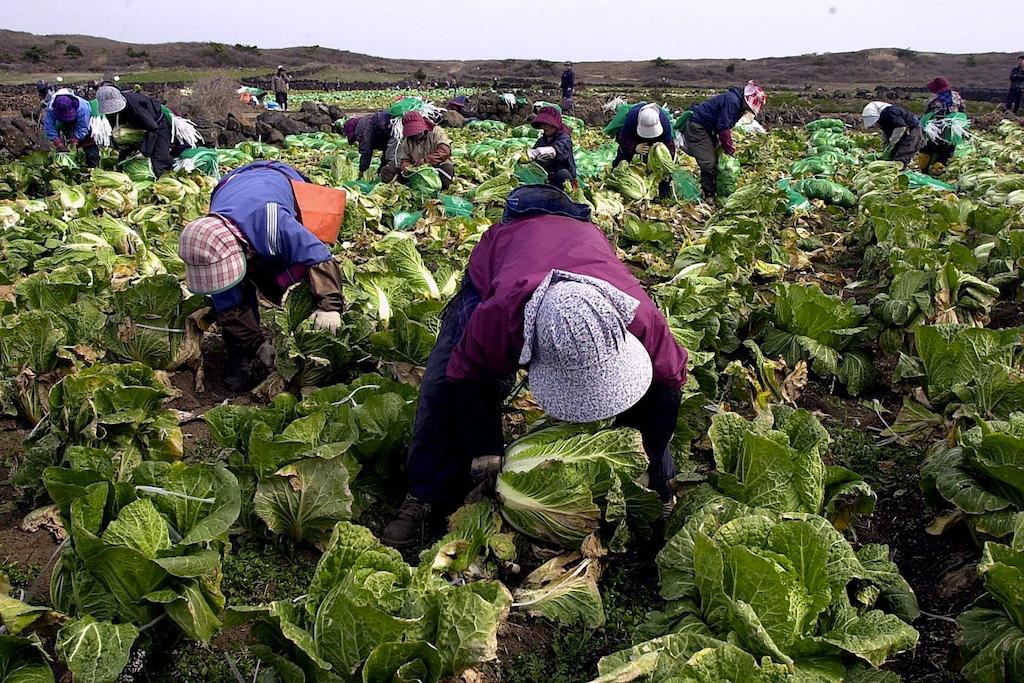Why South Korean farmers are more productive than Chinese farmers
South Korean women harvest cabbage to make the famous dish ‘Kimchi.’
266 million people or 35 percent of workers in China are still employed in the primary sector — agriculture, forestry and fishery.
So it's no surprise that in the past few years Chinese farmers have revolted against Mao-era collective ownership of land. But farmland continues to be owned at the village level and cannot be mortgaged which is seriously impacting agricultural growth and productivity in China.
Deutsche Bank analyst Michael Spencer writes that the inability of farmers to mortgage property largely limits the scale of farming. And this also makes Chinese farms labor intensive and use less machinery.
From Spencer:
"Chinese farmers cannot conceive of borrowing hundreds of thousands of dollars to buy a combine harvester because their opportunity set is limited by their inability to do more than borrow tens of thousands of RMB – and that not often – from banks to pay for fertilizer etc.
…Without the ability to borrow against their land, farmers will be unable to expand sufficiently beyond their current small size to meet the needs of the Chinese economy. Either this limit on agricultural productivity will impose a hard constraint on Chinese growth or, as we think is more likely, outside non-agricultural concerns with sufficient liquidity and non-farm assets against which they can borrow will be the agents of agricultural modernization and China’s farmers will, once again, find themselves merely employees on the land they once owned the rights to."
So far, it has been argued that Chinese agricultural growth has been hampered because it has less land and water per capita. But a chart from Spencer comparing Chinese and South Korean farm growth shows that this isn't the case.
The chart shows that South Korea has less water and arable land but uses more machinery and its farmers end up being a lot more productive than their Chinese counterparts.
More from our partners at Business Insider:
Business Insider: The first color image of Mars from Curiousity
Business Insider: The 14 most famous kids in college this semester
Business Insider: The land that time forgot: Cablevision posts increase in hard-wired phone subscriptions
Business Insider: These are the coolest tech projects you can fund on kickstarter right now
Business Insider: Weibo retaliates against the US swim coach by posting his contact info online
We want to hear your feedback so we can keep improving our website, theworld.org. Please fill out this quick survey and let us know your thoughts (your answers will be anonymous). Thanks for your time!
